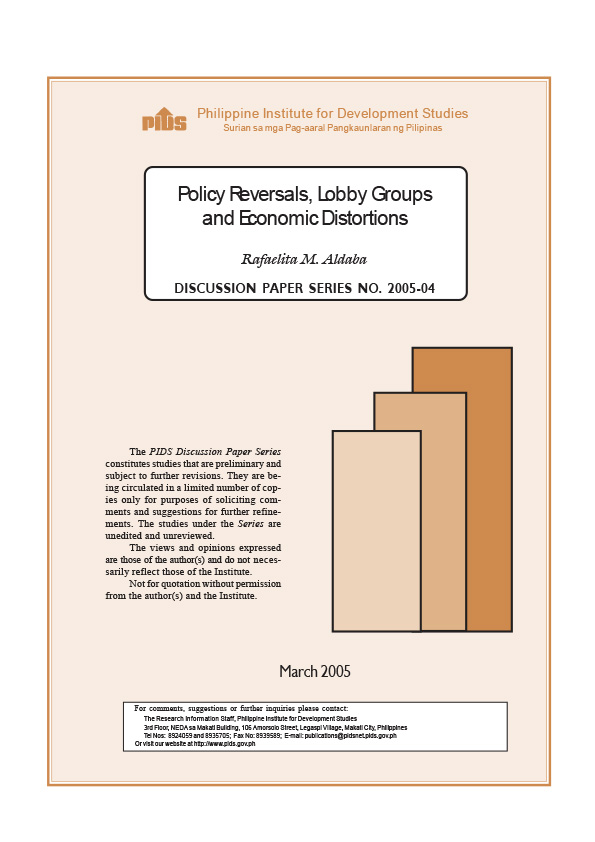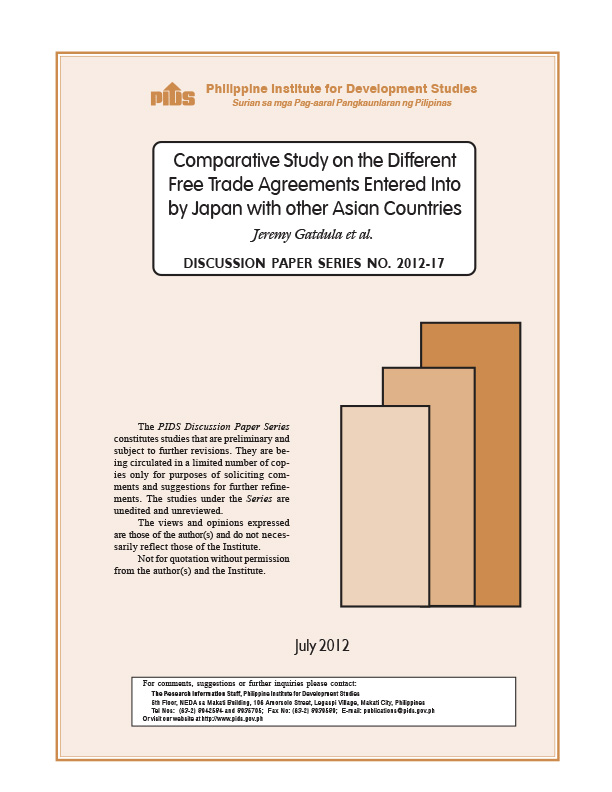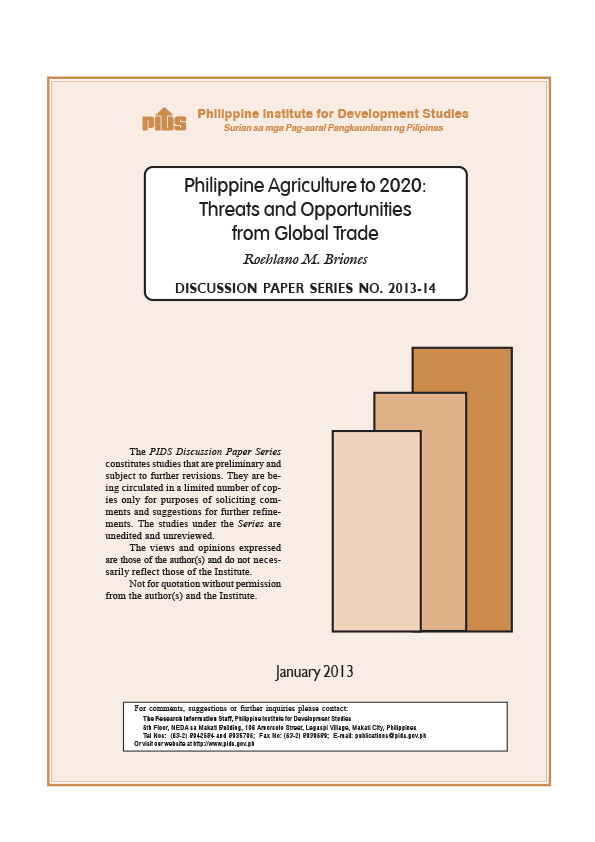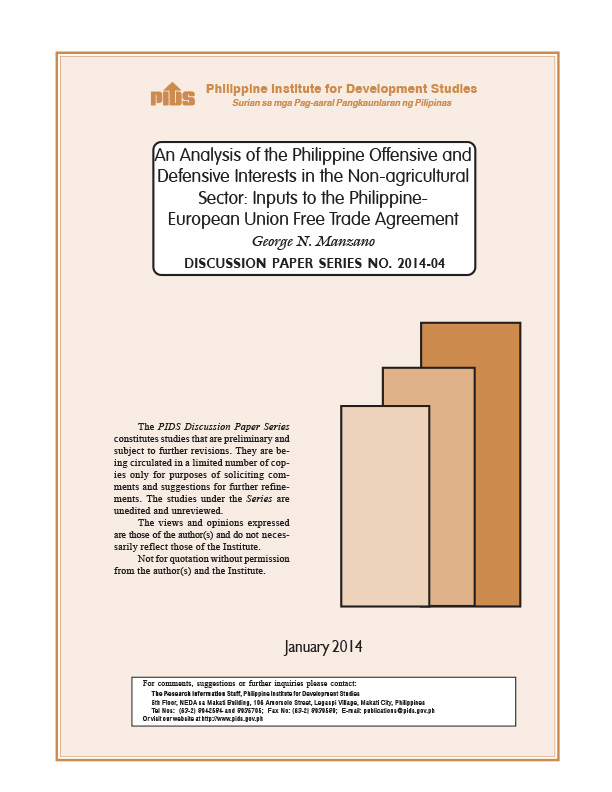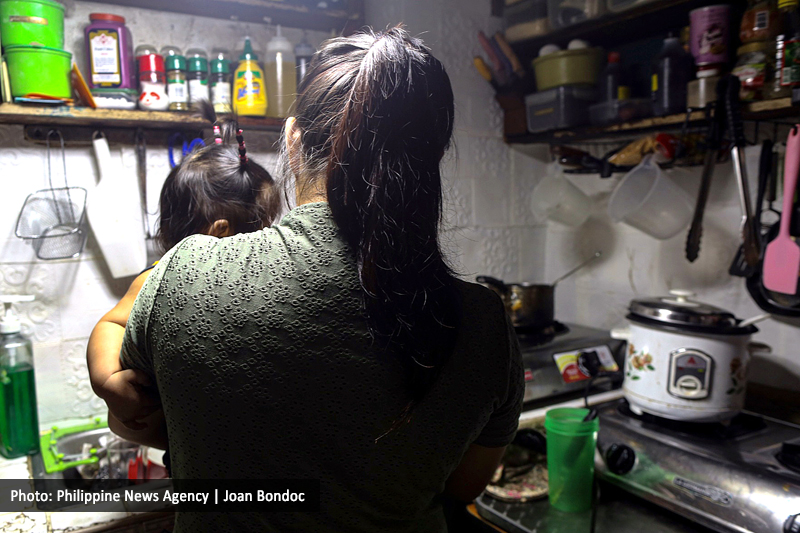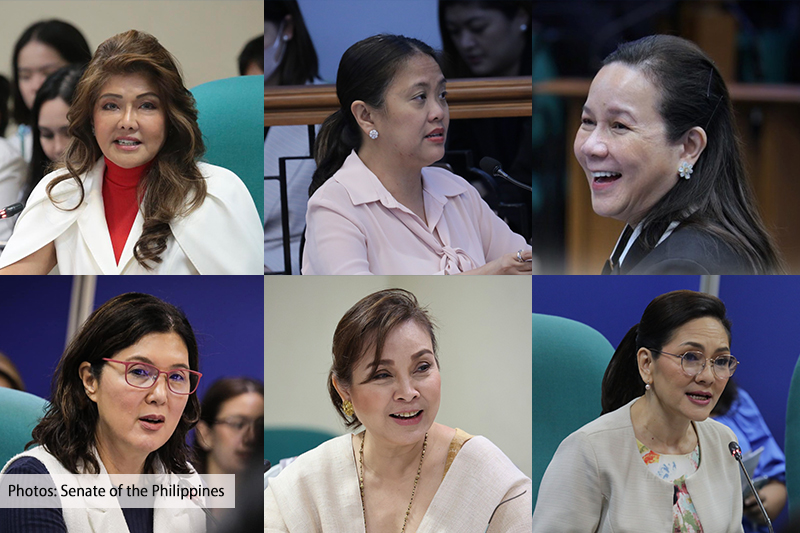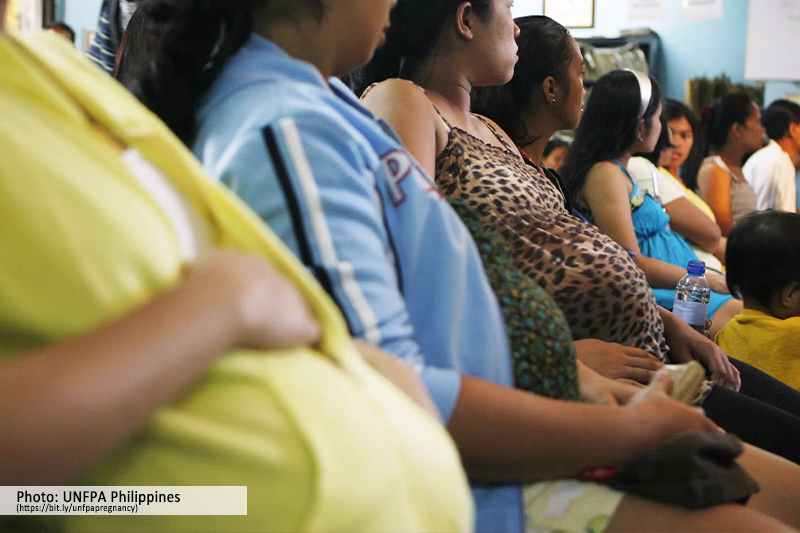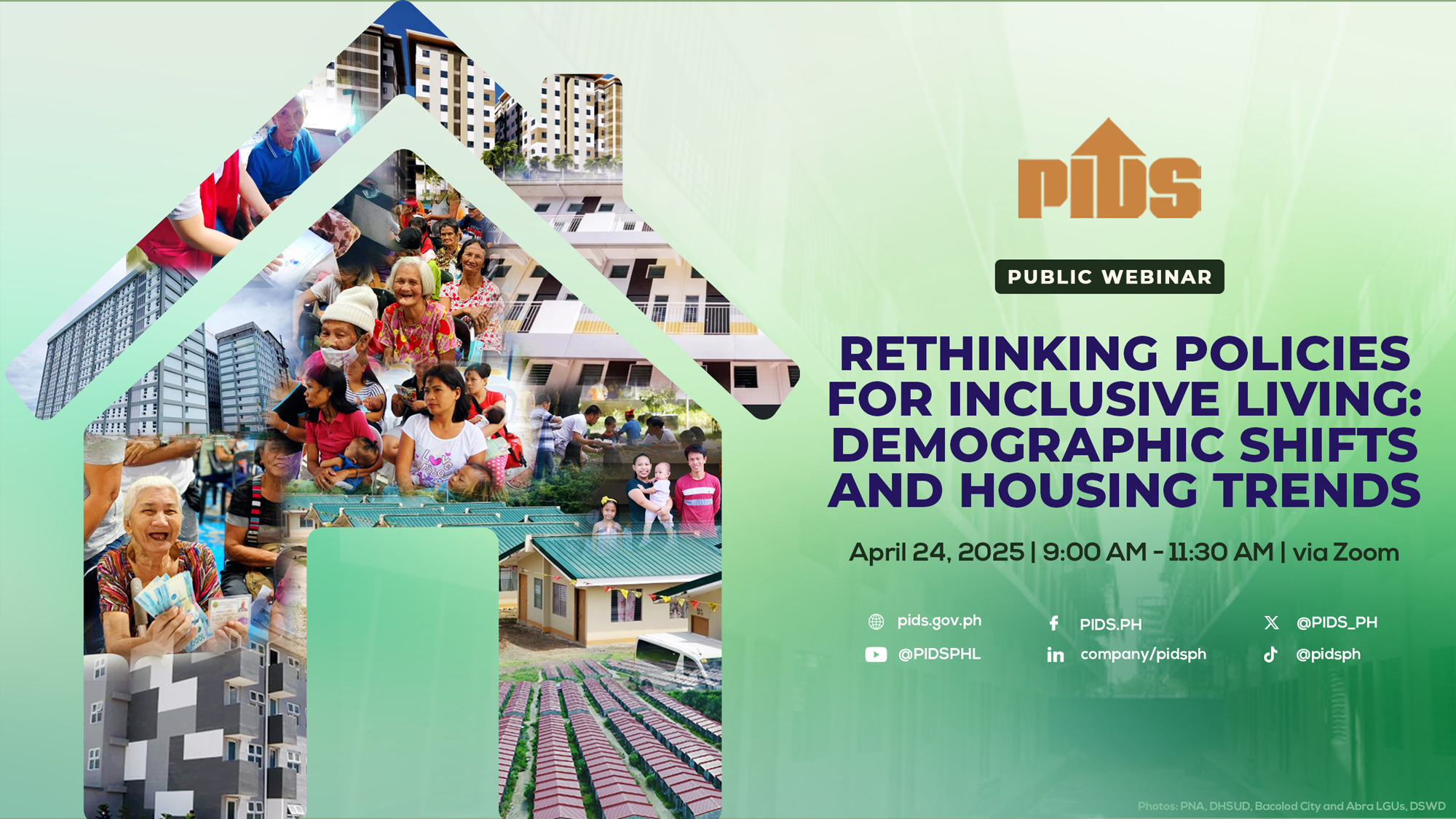This paper aims to review the impact of the various tariff legislations passed from 1998 to 2003 on the structure of protection in the Philippines. The paper finds that while the overall level of effective protection has declined, it has remained uneven as some selected sectors have continued to receive relatively high effective rates of protection. As such, the economic distortions that characterize our tariff structure have continued to prevail and have led to the inefficient use of resources. The tariff structure continues to favor the manufacture of highly protected import substitutes at the expense of exportables. Oftentimes, the favored sectors are intermediate goods like sugar, petrochemicals, float glass, and steel which are inputs to a lot of products. Since the tariffs on the inputs are higher than the outputs, the cost of production has remained high affecting the competitiveness of the user sectors. The large disparities in tariff protection has provided incentives for lobbying. Thus, sustaining the trade reforms and encouraging competition to promote efficiency and consumer welfare has been very difficult.
Citations
This publication has been cited 13 times
- Aldaba, Rafaelita M. 2012. Trade reforms, competition, and innovation in the Philippines. Discussion Papers DP 2012-06. Philippine Institute for Development Studies.
- Aldaba, Rafaelita M. 2012. Surviving trade liberalization in Philippine manufacturing. Discussion Papers DP 2012-10. Philippine Institute for Development Studies.
- Aldaba, Rafaelita M.. 2005. The impact of market reforms on competition, structure and performance of the Philippine economy. Discussion Papers DP 2005-24. Philippine Institute for Development Studies.
- Aldaba, Rafaelita M.. 2005. The impact of market reforms on competition, structure and performance of the Philippine economy. Trade Working Papers 22306. East Asian Bureau of Economic Research.
- Aldaba, Rafaelita M.. 2012. Surviving trade liberalization in Philippine manufacturing. Discussion Papers DP 2012-10. Philippine Institute for Development Studies.
- Aldaba, Rafaelita M.. 2012. Trade reforms, competition, and innovation in the Philippines. Discussion Papers DP 2012-06. Philippine Institute for Development Studies.
- Aldaba, Rafaelita M.. 2012. Trade reforms, competition, and innovation in the Philippines. Working Papers DP-2012-05. Economic Research Institute for ASEAN and East Asia (ERIA).
- Cockburn, John, Erwin L. Corong, and Caesar B. Cororaton. 2008. Poverty effects of the Philippines' tariff reduction program: insights from a computable general equilibrium analysis. Asian Economic Journal, 22, No. 3, 289-319. East Asian Economic Association.
- Corong, Erwin L.. 2007. Economic and poverty impacts of a voluntary carbon reduction for a small liberalized developing economy: The case of the Philippines. Working Papers 2007.9. Fondazione Eni Enrico Mattei.
- Corong, Erwin L.. 2007. Economic and poverty impacts of a voluntary carbon reduction for a small liberalized developing economy: The case of the Philippines. Climate Change Modelling and Policy Working Papers 12034. Fondazione Eni Enrico Mattei (FEEM).
- Cororaton, Caesar B.. 2008. The Philippines: Shadow WTO agricultural domestic support notifications. IFPRI discussion papers 827. International Food Policy Research Institute (IFPRI).
- Cororaton, Caesar B., Erwin L. Corong, and John Cockburn. 2009. Agricultural price distortions, poverty and inequality in the Philippines. Agricultural Distortions Working Paper Series 52790. World Bank.
- David, Cristina C., Ponciano Intal, and Arsenio M. Balisacan. 2007. Distortions to agricultural incentives in the Philippines. Agricultural Distortions Working Paper Series 48477. World Bank.

